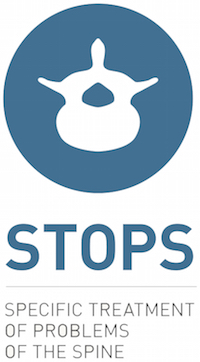Ever wonder why pain can seem to be at different intensities depending on what you are doing or where you are? Even what you are thinking about, or what mood you are in?
Following an injury such as a back strain, we know that many factors can influence what pain level we feel, especially as the duration of injury increases.
Over time, a process known as central sensitisation commonly occurs. This is essentially an increased sensitivity of the nervous system such that tissue irritation in the body (eg: awkward movement, joint sprain, temperature change, etc) can more easily trigger pain messages in the spinal chord and brain – which is the pain we feel. Also, emotional factors such as our mood levels can temporarily alter this sensitivity causing pain levels to be higher or lower as a result – acting a bit like a pain volume control.
Now, this is the body’s normal reaction to persistent pain. It’s one of our body’s protective mechanisms working overtime. You can learn more about central sensitisation, or what we call increased neural sensitivity on our video site.
Advance Healthcare practitioners have been involved with the STOPS Back Pain Research Trials at La Trobe University. This ground breaking study provides compelling evidence that physiotherapy personalised to the patient's problem works.
As a follow-up to the STOPS trials, we looked at which baseline psychological factors, including types of distress, were predictors of recovery. Perhaps not surprisingly, depression and anxiety were examples of psychological factors significantly predicting worse outcomes.
Given this evidence, there is good reason to consider you mood levels when it comes to managing back pain. Your pain is not caused by your mood; but mood might be a contributing factor.
Sometimes doing activities that make us feel happy, relaxed or positive is a useful additions to physiotherapy treatment.
For example, walking is a key exercise for most types of back pain. But perhaps sharing the walk with a friend or singing your favourite tune as you go may actually increase the benefit from walking.
For more information on mood, psychology and back pain contact one of the Advance Healthcare expert practitioners. We have physiotherapists and psychologists available and no referral is necessary. Rebate is available from Medicare, private health insurance, WorkSafe and TAC with bulk billing available on request.



